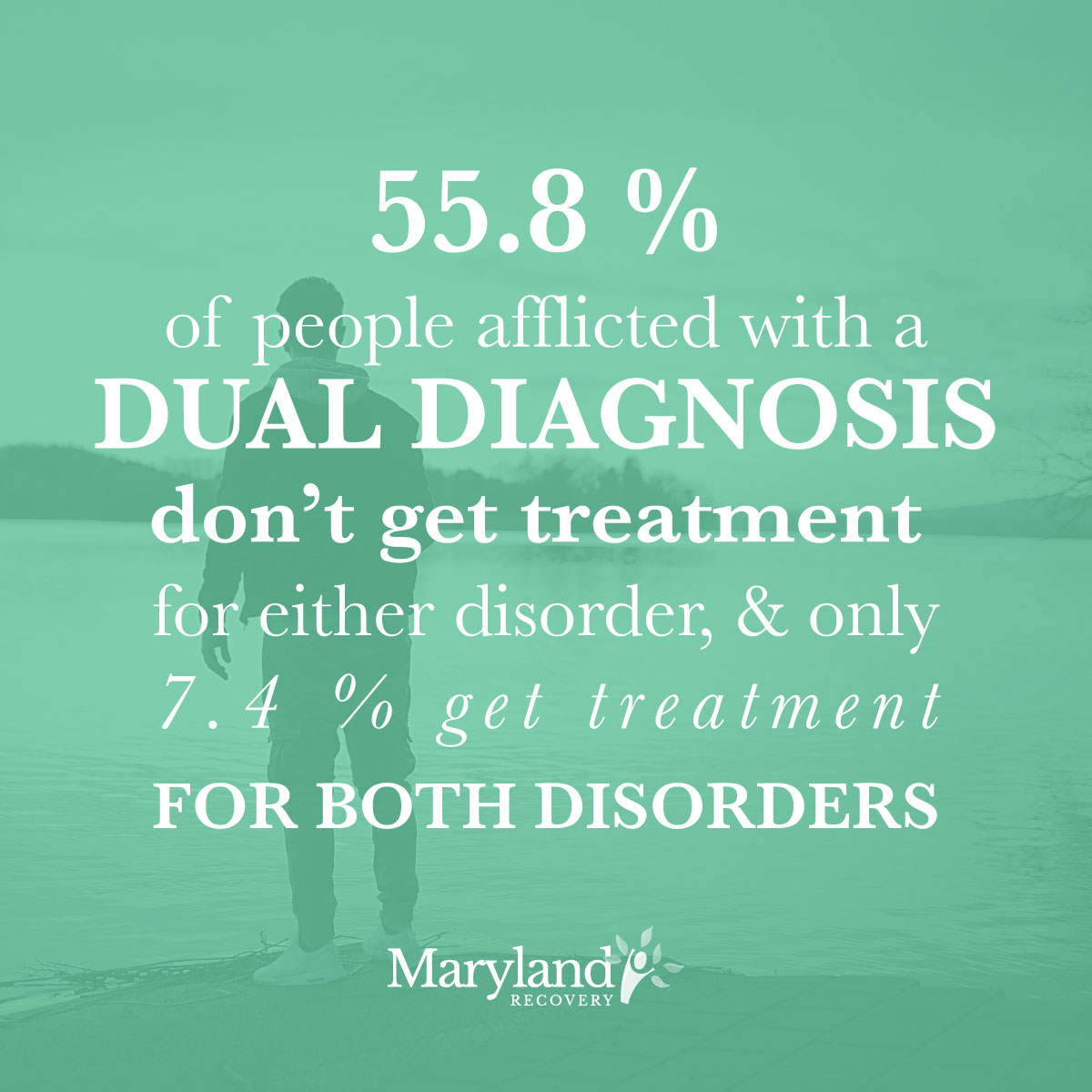What Is Dual Diagnosis Treatment?*
“Dual diagnosis” refers to when an individual has two or more co-occurring disorders. “Co-occurring disorders” are multiple health issues that are happening at the same time and working in conjunction to undermine the overall well-being of the individual.
Examples of dual diagnosis and co-occurring disorders include the following:
- An individual is suffering from depression and using alcohol to self-medicate the symptoms of depression.
- An alcoholic is suffering from an anxiety disorder.
- A heroin addict is suffering from bipolar disorder.
- A person suffering from bipolar disorder is abusing Xanax.
- A person’s 20-year morphine addiction has left them with a series of phobias, including agoraphobia, which renders them unable to leave their home.
- A person is suffering from ADHD, begins abusing their ADHD medication, and then becomes addicted to Adderall and other drugs.
- A military veteran with injuries from combat uses opioid painkillers for pain management. He or she gets diagnosed with PTSD on top of the issues with pain and being dependent on painkillers.
The combinations of co-occurring disorders and the details of a person’s unique situation are limitless. However, in all of these scenarios, the person is suffering with more than one health problem. And because substance abuse is tying the health problems together in a negative way, the individual requires dual diagnosis treatment to get all of the problems addressed at once.
*Please note that we are currently NOT able to offer mental health services. However, we have plans to bring these services back in-house by the end of Summer 2021. In the meantime we coordinate with other service providers in the community when mental health services are needed.

Which Mental Health Conditions Lead to Addiction More Than Others?
With substance abuse and addiction, there will always be mental health issues that are co-occurring with drug and alcohol use. Drug and alcohol use – even in moderation – can cause a wide range of side effects, including deteriorating one’s mental health. The mental health issues may be slight, or delayed – making it difficult to recognize the symptoms or connect them to substance abuse.
Does Addiction Cause Mental Health Issues, or Do Mental Health Issues Cause Addiction?
Mental health issues and substance abuse are connected in cycles, and either or can be the trigger for the other. For example:
- A person who struggles with chronic depression may use alcohol or drugs to self-medicate their depression symptoms, in an attempt to feel better.
- A person who has been increasingly using drugs and alcohol may start to feel new or worsening symptoms of depression.
Both of the above examples lead to the same cycle of worsening co-occurring disorders. The more a person uses drugs and alcohol, the stronger and more severe the symptoms of depression will be (in response to the worsening substance abuse problem). Likewise, the worse and more severe that the depression symptoms become, the more a person will be tempted to self-medicate with drugs and alcohol.
In order to break the cycle of these co-occurring disorders, you need to treat each of the disorders concurrently (at the same time). It is very dangerous to only treat half, or only a portion, of a dual diagnosis, as the person will never fully recover if all disorders are not treated.
Lack of Dual Diagnosis Treatment Leads to Relapse
It is no secret that traditional drug and alcohol addiction treatment programs have high relapse rates and low long-term success rates. Some studies show abysmal rehab success rates of as low as 5 to 10 percent. However, the drug rehab success rates do not take into account 1) dual diagnosis treatment, 2) whether the individual had a co-occurring mental health disorder and 3) whether the mental health issues were ever recognized or treated.
Seeing as how up to 66 percent of those with a substance abuse problem also have a mental health issue, you can see how failing to treat mental health issues could lead to such low drug rehab success rates. If you don’t treat the whole disease, how can you expect to successfully overcome it?
Dual diagnosis facilities have much higher success rates, and can offer those recovering from addiction a better chance at finding success and long-term sobriety.











